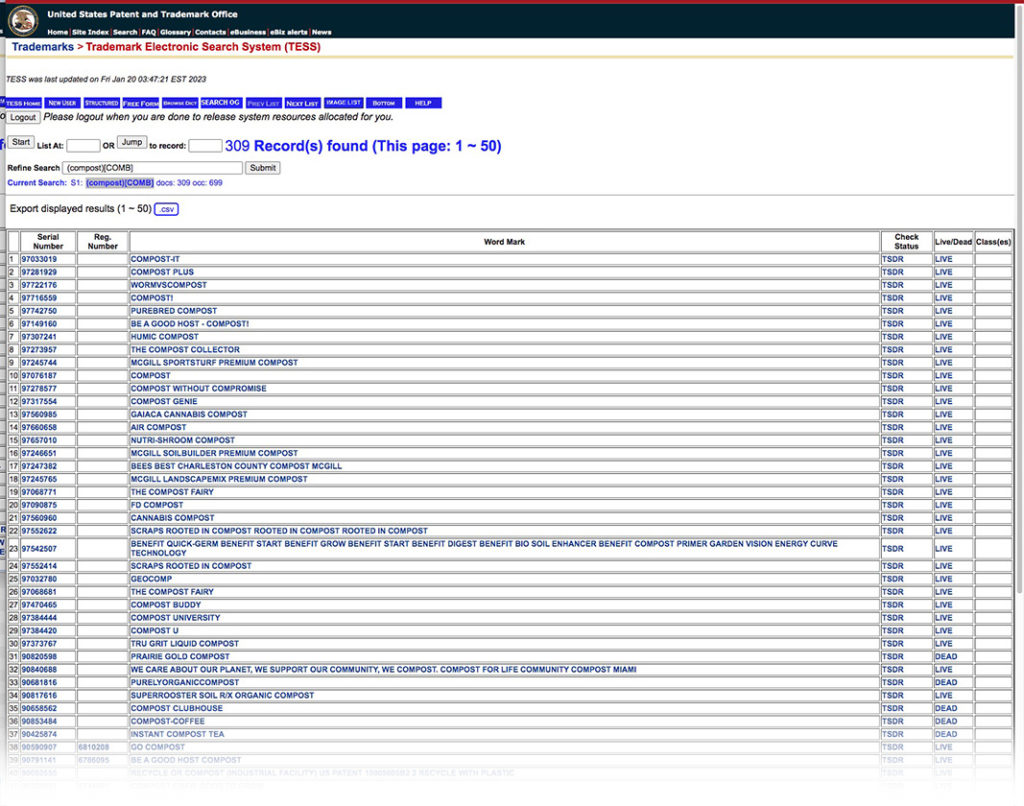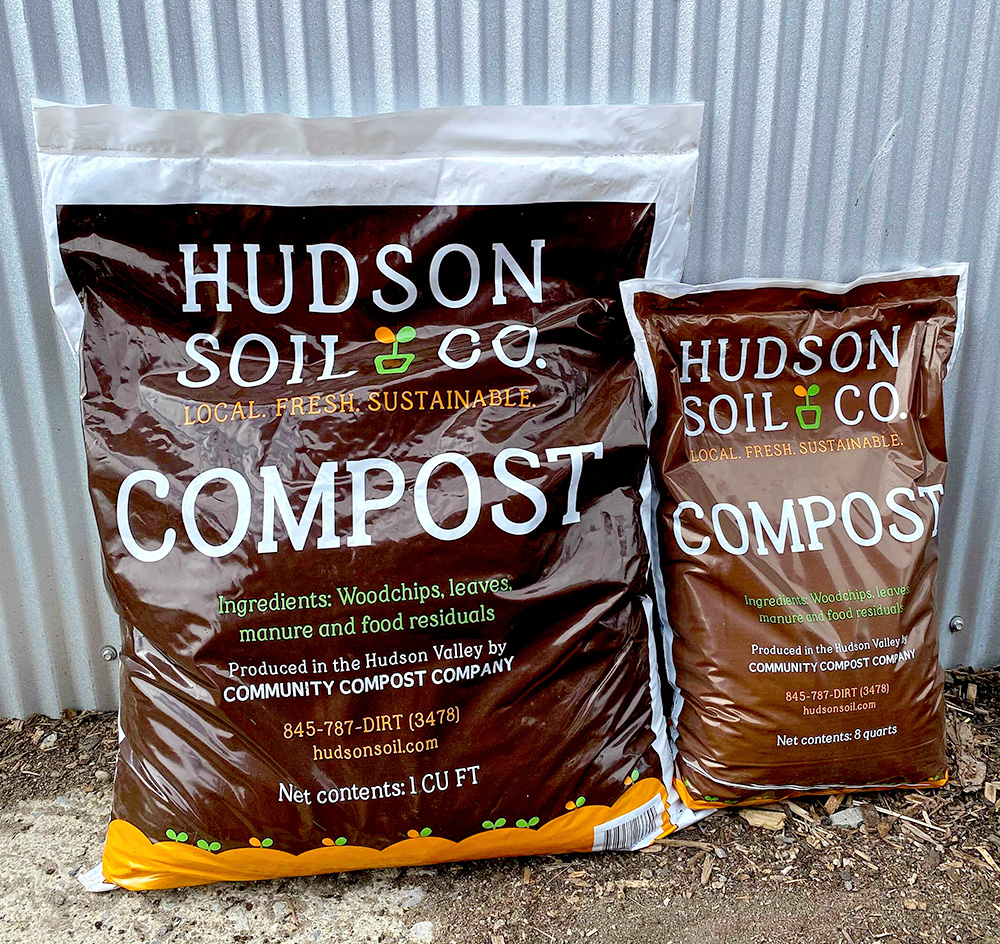Top: Some registered marks are the names of compost products aimed at specific consumers or crops. Photos courtesy of Community Compost Company
Matthew Karmel and Tim Steckel
Good marketing can help to distinguish your products from competitors, build consumer loyalty, and establish your brand as a trusted and reputable source of compost. Good marketing also highlights the specific attributes of your product and allows you to market directly to target customers. This can be especially important in a crowded and competitive market, as consumers may have a difficult time choosing between similar products.
Memorable and unique marketing materials consist of niche product names, memorable slogans, and recognizable logos. Trademark protection is a legal tool that helps to protect words, phrases, symbols, or designs that are used to identify and distinguish a product or service and are usually called “marks.” Registering your trademarks prevents others from using similar wording.
An initial step to obtaining state or federal trademark protection is to conduct a thorough search to ensure that your desired marks are available for use and not like any being used by another company. Next, a trademark application is filed with the appropriate trademark office, along with evidence of use of the trademark in commerce. Experienced legal counsel can assist with the trademark registration process.
If your trademark application is approved, you will be entitled to heightened protection if another party seeks to use terms that are like your registered marks. If the application is rejected for one reason or another, such as being too similar to another mark or too generic, the denial can be appealed, or you can proceed with another application for a different trademark.
Maintaining An Active Trademark
Trademark protection is not a one-time process, however. While a federal trademark registration lasts 10 years, there are compliance requirements to maintain an active trademark. And it is important to monitor your trademark continuously and take steps to protect it from infringement. This may include taking legal action against companies that are using your trademark without permission or altering your trademark to stay current and relevant. In general, monitoring and protecting your trademark is done through informal cease and desist letters, and, therefore, is not as costly as some might expect.
As the compost industry matures, companies have already begun to use trademarks to protect and enhance their marketing efforts. In fact, a search of federally registered trademarks reveals more than 300 results using the word “compost.” Some of these registered marks are the names of compost manufacturers, compost products aimed at specific consumers or crops, or advertising slogans touting the importance of compost products.

A search of federally-registered trademarks using the term “compost” returned 309 results (as of January 20, 2023).
Whether or not trademark protection is pursued, it is important to make sure that your branding is not too similar to any registered trademarks — before time and money are spent on your own branding and marketing. Otherwise, you may need to change a key product name or slogan or could be subject to fines or penalties for using someone else’s trademark. Composters with little local competition need to be aware of potential competition from national brands and producers because their marketing materials might conflict if the national companies have registered similar trademarks.
Trust is very important in compost sales, which is why many compost manufacturers rely on testing certifications, such as the Seal of Testing Assurance (STA). But as more and more composters enter the market, the STA certification alone may not be enough to build consumer loyalty and trust. That’s where good marketing comes in, and trademark protections are the best way to safeguard the trust that has been built with customers.
Matthew A. Karmel, Esq. is chair of Offit Kurman’s Environmental and Sustainability Law Group, and provides comprehensive legal assistance to composters and other members of the organics recycling industry. He also helped found the NJ Composting Council and its Advocacy and Market Development Committee. Tim Steckel is a digital marketing expert and the founder of Compost Marketing Agency. He is a member of the Ohio Organics Council and a USCC Young Professional.














